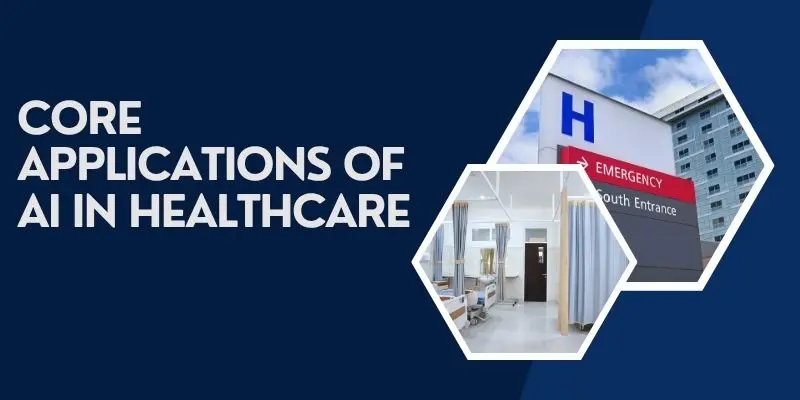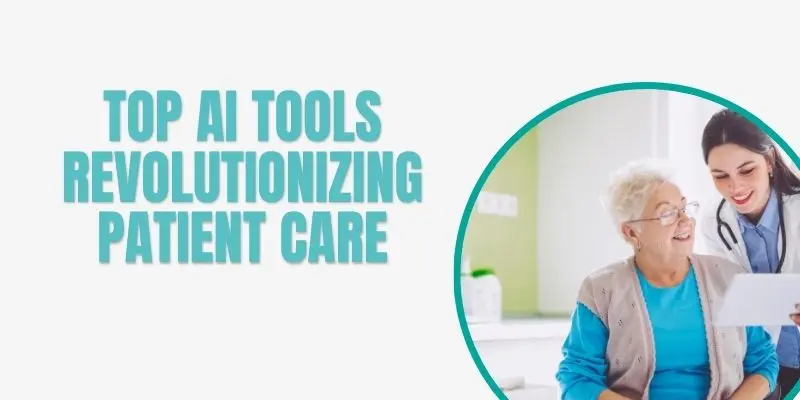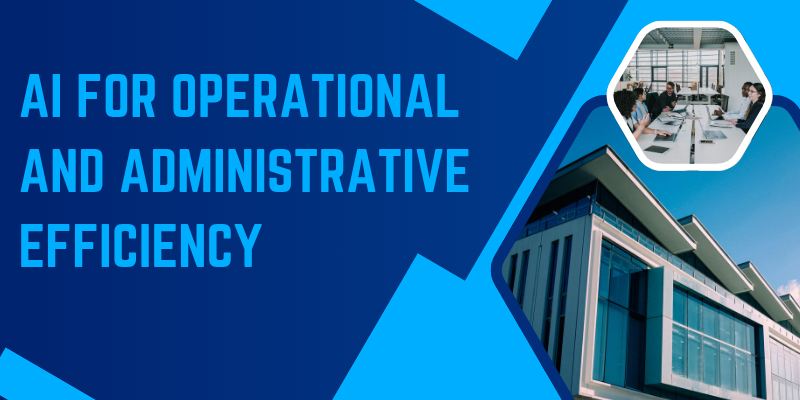Top AI Tools Boosting Healthcare Startups
Published: 24 Jul 2025
The healthcare world is changing fast, and AI is leading the way. From faster diagnoses to smarter patient care and cost savings, startups are using artificial intelligence to transform how healthcare works. These tools don’t just make things easier — they make them more accurate, efficient, and human-focused.
In this guide, we’ll explore the Top AI Tools Boosting Healthcare Startups that are reshaping modern medicine. Whether you’re a founder, investor, or health tech enthusiast, these AI solutions can help your startup grow faster, reduce errors, and deliver better patient experiences. Let’s discover how these powerful tools are building the future of healthcare — one smart innovation at a time.
1. Core Applications of AI in Healthcare
AI is reshaping healthcare from the ground up. Startups are leveraging it to streamline operations, improve patient care, and drive innovation.

Here are the core ways AI is making a difference in healthcare today:
1. Virtual Assistants
AI-powered virtual assistants help reduce staff workload by managing patient inquiries, scheduling, and follow-ups. Tools like Dax Copilot and Ambience Healthcare, examples of AI for business in healthcare, enable real-time note-taking during consultations, allowing clinicians to focus more on patients and less on screens.
2. Symptom Checkers
AI symptom checkers like Ada and Kahun offer preliminary assessments based on user input. They analyze symptoms, medical history, and other data to suggest possible conditions or next steps – empowering users and reducing unnecessary visits.
3. Imaging & Diagnostics
AI tools such as Aidoc, Lunit, and Biofourmis analyze medical images (X-rays, CT scans, MRIs) with high precision. These tools assist radiologists in detecting diseases like cancer, stroke, or fractures faster and more accurately than traditional methods.
4. Personalized Treatment
AI enables hyper-personalized care plans by analyzing patient data, genetics, lifestyle, and treatment responses. Platforms like Cohere Health and Memora Health help doctors recommend the most effective interventions tailored to each individual.
5. Fraud Detection
AI algorithms can detect unusual billing patterns and prevent insurance fraud. Tools like Sift Healthcare and Candid Health use predictive analytics to flag inconsistencies, saving startups and healthcare providers from costly compliance issues.
6. Mental Health Tools
AI-powered chatbots and platforms like Wysa, Woebot, and Replika support mental health care by providing cognitive behavioral therapy (CBT), mood tracking, and emotional support 24/7 – especially valuable in regions with limited access to therapists.
7. Robotics & Surgery
AI-driven robotic systems are revolutionizing surgery. From assisting with precise incisions to enabling remote operations, platforms in robotic surgery help minimize human error and speed up recovery times. AI also plays a key role in training simulations and OR efficiency.
2. Top AI Tools Revolutionizing Patient Care
Patient care is at the heart of every healthcare startup – and AI is making it more efficient, accurate, and personalized than ever before. From mental health support to real-time documentation.

These top AI tools are redefining the way startups interact with and care for patients.
1. Ada
Ada is a leading AI-powered symptom checker trusted by millions globally. It asks users medically relevant questions and suggests possible causes for their symptoms. Startups can integrate Ada to offer 24/7 triage support, reduce unnecessary appointments, and guide users to the right care faster.
2. Woebot
Woebot is a conversational mental health assistant built on cognitive behavioral therapy (CBT). It engages users in daily, supportive conversations that help manage stress, anxiety, and mood. Startups can utilize Woebot to provide mental wellness support without the high costs associated with traditional therapy.
3. Abridged
Abridge utilizes AI to convert doctor-patient conversations into structured clinical notes in real-time. It captures key medical terms, medications, and follow-up actions, reducing clinician burnout and improving documentation accuracy. This tool is ideal for startups looking to streamline clinical workflows and maintain quality care.
4. Wysa
Wysa is another mental health AI tool that functions as a self-help coach. It combines AI chat with evidence-based techniques like CBT, meditation, and journaling. Wysa is HIPAA-compliant, making it a trusted choice for startups focusing on digital mental health services.
5. Dax Copilot
Developed by Nuance (a Microsoft company), Dax Copilot uses ambient AI to document clinical visits automatically. It listens in the background, understands medical context, and generates accurate notes directly into the EHR. For startups, Dax improves productivity, reduces time spent on documentation, and enhances patient focus.
6. Storyline AI
Storyline AI helps create personalized care content and narratives for patients. It can generate summaries, educational materials, or follow-up instructions tailored to individual cases. Healthcare startups can use this tool to boost patient understanding, satisfaction, and adherence to care plans.
7. ChatGPT (Healthcare-Specific Uses)
While ChatGPT is a general-purpose AI model, its healthcare-specific applications are growing fast. Startups use it to:
- Draft emails and patient summaries
- Power chatbots for triage or FAQs
- Translate complex medical info into simple language
- Train staff with simulated patient interactions
With proper safeguards and integrations, ChatGPT can enhance efficiency without replacing human judgment.
3. AI for Operational and Administrative Efficiency
Behind every successful healthcare startup is a well-oiled backend. While clinical care grabs attention, operational efficiency is just as critical.

AI tools are helping startups streamline billing, scheduling, patient intake, and repetitive administrative tasks. Here are some of the top tools transforming the backend of healthcare:
1. AKASA – Smart Revenue Cycle Automation
AKASA uses machine learning and automation to simplify complex billing and revenue cycle processes. It handles claim status checks, prior authorizations, denial management, and payment posting. For healthcare startups, AKASA reduces administrative overhead, improves cash flow, and ensures faster reimbursements – all while minimizing human error.
2. Syllable – AI-Powered Patient Intake and Communication
Syllable provides AI voice assistants and digital front-door tools to manage patient calls, appointment scheduling, and intake forms. It works 24/7 to answer common questions and route calls efficiently. Startups can use Syllable to automate patient engagement, reduce call center loads, and improve patient satisfaction.
3. LeanTaaS – Smarter Scheduling and Capacity Management
LeanTaaS offers predictive analytics tools to optimize hospital and clinic resources such as operating rooms, infusion chairs, and imaging equipment. Its iQueue platform uses AI to improve scheduling, reduce wait times, and increase throughput. Startups in outpatient care or diagnostics can benefit from LeanTaaS by maximizing limited resources.
4. Cadence – Remote Patient Monitoring and Automation
Cadence combines remote monitoring with workflow automation. It continuously tracks vital signs and patient progress, then automatically generates alerts or tasks for clinical teams. For chronic care startups, Cadence improves scalability without sacrificing personalized attention.
5. Notable – Robotic Process Automation (RPA) for Healthcare
Notable automates routine tasks like prior authorizations, insurance verifications, appointment reminders, and data entry. Using voice and natural language processing, it integrates smoothly with EHRs. Startups can use Notable to cut administrative workload and reduce burnout among care teams.
6. Rivet – Financial Analytics and Price Transparency
Rivet helps healthcare providers manage underpayments, denials, and patient estimates. It offers clean, transparent billing tools that improve the revenue cycle and increase trust with patients. For early-stage healthcare startups, Rivet adds much-needed clarity to pricing and collections.
Data and Diagnostics – Tools Powering Smart Decisions
Data is the fuel of modern healthcare – and AI is the engine that turns it into smart, actionable insights. From analyzing complex imaging scans to assisting doctors with real-time decision-making, AI tools are helping startups provide faster, more accurate care. Here are some of the most impactful tools transforming diagnostics and clinical analytics:
1. Aidoc – AI-Enhanced Medical Imaging
Aidoc specializes in advanced image analysis. Its AI scans CTs, MRIs, and X-rays to detect critical conditions like brain bleeds, strokes, or pulmonary embolisms in real time. It alerts radiologists and physicians instantly, helping them prioritize urgent cases. For imaging startups or diagnostic centers, Aidoc boosts both speed and accuracy—especially in emergencies.
2. Lunit – Precision Diagnostics Through Deep Learning
Lunit applies deep learning to detect diseases such as lung cancer, breast cancer, and tuberculosis from radiological images. Its algorithms consistently match or outperform human experts. Startups offering radiology or cancer screening services can use Lunit to improve early detection and treatment planning.
3. Biofourmis – Predictive Monitoring and Patient Analytics
Biofourmis focuses on continuous monitoring and predictive analytics using wearable devices and cloud-based platforms. It tracks patient vitals and health patterns to predict complications before they happen. This tool is perfect for startups managing chronic care or remote patient monitoring, offering a scalable way to intervene early and reduce hospital readmissions.
4. DeepScribe – Intelligent Medical Note-Taking
DeepScribe listens to doctor-patient conversations and creates structured, EHR-ready notes using natural language processing. It reduces administrative time and improves documentation accuracy. Startups with a strong outpatient or telehealth focus can integrate DeepScribe to streamline record-keeping while maintaining high-quality care.
5. Navina – Clinical Decision Support for Primary Care
Navina transforms unstructured EHR data into a structured summary, highlighting relevant diagnoses, lab results, and patient history. It enables clinicians to make better, faster decisions during visits. For startups operating in primary or family care, Navina helps manage complex cases more efficiently and improves the quality of care delivered.
6. Nabla Copilot – AI Assistant for Doctors
Nabla Copilot is a real-time assistant that helps doctors during and after patient consultations. It takes notes, provides coding suggestions, and can even answer medical questions based on clinical context. Startups can deploy Nabla to enhance the productivity of their healthcare teams and reduce documentation fatigue.
5. Startups to Watch
The healthcare AI space is booming, and startups are at the forefront of this revolution. From early innovators building smart solutions to mature players scaling globally, these companies are shaping the future of care. Here are standout AI-driven startups to watch in 2025 – organized by their growth stage:
Early-Stage Startups
These startups are gaining momentum with fresh ideas and targeted solutions, often focusing on specific pain points in healthcare.
- Upheal
Upheal uses AI to support mental health professionals by transcribing and analyzing therapy sessions. It generates session summaries, tracks patient progress, and identifies emotional cues – saving time while enhancing care quality. - CareAlign
CareAlign is rethinking clinical workflows by helping care teams collaborate more efficiently. Its platform uses AI to streamline handoffs, to-do lists, and clinical notes, reducing medical errors and improving patient outcomes. - CloudCruise
CloudCruise provides AI-driven patient insights by aggregating data from different healthcare systems. It helps providers make better decisions through real-time analytics, making it a promising tool for early diagnostic support and population health management.
Growth-Stage Startups
These companies have found strong product-market fit and are scaling their offerings.
Health Note
Health Note automates patient intake and chart prep. Patients provide information before visits, and the platform uses AI to structure it for physicians – reducing documentation burden and improving visit efficiency.
Theator
Theator is transforming surgical intelligence using AI-powered video analysis. It enables surgeons to review, benchmark, and improve performance by identifying critical moments in procedures. For surgical centers, Theator is a step toward data-driven, safer operations.
Late-Stage Startups
These well-funded companies are expanding globally and partnering with major health systems.
Viz.ai
Viz.ai uses real-time AI to detect strokes and other life-threatening conditions from imaging scans and alerts specialists immediately. It bridges the gap between diagnosis and treatment – saving time, and more importantly, lives.
Innovaccer
Innovaccer is a healthcare data platform that unifies patient records from various sources to create a comprehensive patient view. Its AI-powered tools improve care coordination, population health, and cost reduction – making it a backbone for value-based care.
Memora Health
Memora automates patient follow-up and communication using conversational AI. It ensures patients stay engaged before and after visits, improving adherence and outcomes. Health systems use Memora to reduce no-shows and boost patient satisfaction.
6. Choosing the Right AI Tool for Your Startup
With hundreds of AI tools available, choosing the right one for your healthcare startup can feel overwhelming. But selecting the right solution is critical – not just for efficiency, but for patient trust and long-term success. Here’s a clear decision-making guide to help you make a smart, strategic choice:
1. Match with Your Use Case
Start with your core need. Are you solving a clinical problem, improving operations, or enhancing patient engagement?
- Clinical Use: Tools like Aidoc (imaging) or Navina (decision support) are great for providers.
- Operational Needs: Platforms like AKASA (billing automation) or Syllable (patient intake) streamline backend tasks.
- Patient-Facing Apps: Choose tools like Ada (symptom checker) or Wysa (mental health chatbot) for user interaction.
Define your priority – then shortlist tools that directly support that function.
2. Check for Compliance and Regulations
Healthcare is heavily regulated. Your chosen AI tool must follow data privacy laws like:
- HIPAA (USA)
- GDPR (Europe)
- FDA clearance (if it offers diagnostic insights)
Ensure the tool is:
- HIPAA-compliant for handling patient data
- Transparent in how its AI model works
- Regularly updated to meet regulatory changes
Startups can’t afford compliance mistakes – prioritize tools that meet legal standards out of the box.
3. Integration with EHRs and Workflow Tools
The best AI tool is one your team actually uses. Look for seamless integration with your existing EHR (Electronic Health Record) or practice management systems.
Ask:
- Does it support Epic, Cerner, or Athenahealth integration?
- Can it auto-sync notes, prescriptions, or patient data?
- Is the interface user-friendly for clinicians or staff?
Poor integration leads to frustration and low adoption – so make ease of use a priority.
4. Scalability and Pricing Models
Your startup will grow – your tools should scale with you. Before committing:
- Check if the tool supports growing patient volumes or multi-site operations
- Understand if pricing is per provider, per patient, or based on usage
- Look for flexible contracts – avoid tools that lock you into long-term commitments too early
Also, consider tools that offer customization options and dedicated support as your needs evolve.
7. Key Challenges and Risks in Adopting AI
AI brings major benefits to healthcare startups – but it also introduces serious challenges. Understanding these risks early on is essential to building responsibly and sustainably. Here are the key concerns you need to consider when adopting AI in your healthcare startup:
1. Bias and Data Privacy
AI models learn from data – but if that data is biased, the AI’s decisions can be too.
- Bias in healthcare data can lead to unequal treatment recommendations across races, genders, or age groups.
- For example, if a symptom checker hasn’t been trained on diverse populations, it may produce inaccurate results for some users.
- Additionally, data privacy is non-negotiable in healthcare. Mishandling sensitive health information can lead to lawsuits, fines, and loss of user trust.
Solution:
- Use tools trained on diverse datasets
- Prioritize HIPAA- and GDPR-compliant platforms
- Regularly audit AI outputs to catch unfair patterns
2. Over-Dependence on Automation
AI is a powerful assistant – not a replacement for human judgment.
- Over-relying on AI can lead to missed diagnoses or wrong decisions, especially if the AI is used blindly.
- Doctors and staff may begin to trust AI outputs too much, even when the results are flawed.
Solution:
- Use AI to support, not replace, clinical decisions
- Always involve human oversight for critical care decisions
- Train teams to understand AI limitations
3. Integration Complexity
Even the best AI tools can fail if they don’t fit into your workflow.
- Many startups struggle with integrating AI tools into their Electronic Health Records (EHRs) or existing systems.
- Poor integration leads to staff resistance, workflow disruptions, and low adoption.
Solution:
- Choose AI solutions with proven integration support for major EHR platforms
- Involve technical and clinical teams during implementation
- Start small with pilot tests before full rollout
4. Generative AI Security Risks
Tools powered by generative AI (like ChatGPT or Claude) pose unique security and accuracy risks:
- They may hallucinate incorrect facts, leading to misinformation
- If not properly configured, they can expose sensitive data or be vulnerable to prompt injection attacks
- Many generative models are still black-box systems – lacking transparency in how they reach conclusions
Solution:
- Use custom-tuned, healthcare-safe versions of generative AI
- Avoid sharing sensitive patient data with the public or non-secure models
- Monitor outputs and combine with traditional verification steps
8. Funding Trends and Market Outlook
The healthcare AI market is experiencing a funding boom. Investors are pouring billions into startups leveraging AI for diagnostics, patient engagement, and backend efficiency. According to market trackers, healthcare AI funding surpassed $10 billion globally in 2025, with projections showing continued growth into 2025.
Surge in AI-Focused Healthcare Funding
From virtual care to predictive analytics, venture capitalists are backing solutions that promise both cost savings and improved outcomes. Early-stage companies like Upheal and CareAlign are drawing seed and Series A rounds with strong backing, especially those integrating AI with mental health or clinician productivity.
IPO Movement and M&A Activity
Late-stage firms like Viz.ai and Innovaccer are rumored IPO candidates. Meanwhile, major players like Amazon, UnitedHealth, and Microsoft are acquiring AI startups to build comprehensive health ecosystems. M&A activity is expected to rise as big tech and large health systems seek proven AI capabilities.
What It Means for Early-Stage Startups
For founders, this is a rare window of opportunity. Investors are not just funding ideas – they’re backing AI solutions that solve real pain points. Startups that can demonstrate clinical efficacy, regulatory readiness, and EHR integration have the best chances of scaling – and possibly exiting via acquisition or public offering.
Conclusion
AI isn’t just changing healthcare — it’s reinventing it. From startups using AI for smarter diagnostics to personalized patient care and backend automation, the transformation is undeniable. While challenges like data privacy and seamless EHR integration remain, the Top AI Tools Boosting Healthcare Startups are proving that innovation can be safe, scalable, and life-changing.
For founders, this is the perfect time to adopt AI-driven strategies that enhance patient trust, cut costs, and unlock new growth. The startups leading today’s revolution aren’t just using technology — they’re building the future of healthcare itself.
FAQs
AI tools like Ada, Woebot, Aidoc, Dax Copilot, and LeanTaaS are widely used for diagnostics, patient care, and operations.
ChatGPT (with healthcare-specific tuning) is among the best for answering medical questions conversationally and clearly.
AI is used for medical imaging, patient intake, billing, diagnostics, decision support, and improving patient experiences.
One major application is diagnostic imaging – tools like Aidoc and Lunit assist radiologists in detecting diseases faster.
Yes, tools like AKASA, Syllable, and Notable automate admin tasks, reducing the workload for healthcare staff.
When compliant with healthcare regulations (like HIPAA), AI tools can be safe, but data privacy and bias remain concerns.
Woebot and Wysa are AI-powered chatbots that provide mental health support using evidence-based techniques.
With rising funding and tech adoption, AI is set to become central to diagnostics, remote care, and hospital operations.
Many modern AI tools like Notable and Navina offer seamless integration with Electronic Health Records (EHR) platforms.
Yes, startups like Upheal, Theator, and Viz.ai are gaining traction due to increasing investor interest and healthcare needs.

- Be Respectful
- Stay Relevant
- Stay Positive
- True Feedback
- Encourage Discussion
- Avoid Spamming
- No Fake News
- Don't Copy-Paste
- No Personal Attacks

- Be Respectful
- Stay Relevant
- Stay Positive
- True Feedback
- Encourage Discussion
- Avoid Spamming
- No Fake News
- Don't Copy-Paste
- No Personal Attacks





